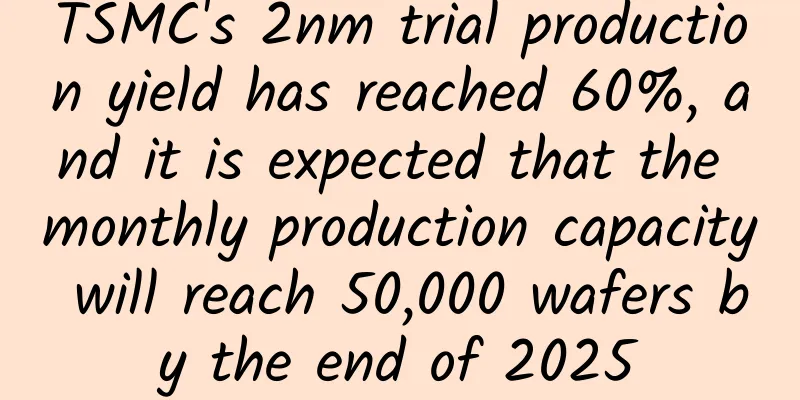TSMC's 2nm trial production yield has reached 60%, and it is expected that the monthly production capacity will reach 50,000 wafers by the end of 2025

|
TSMC's plan to quickly deliver the first 2nm wafers to lucrative customers remains uncertain, and it all depends on how quickly the semiconductor giant can increase production capacity. According to the last report mentioning this specific number, the company has reached 60% of trial production on the cutting-edge lithography technology, which is a major milestone for the foundry and also expands its lead over the competition. Now, one analyst believes that the pilot phase has made some progress toward full production since those production numbers were mentioned a few weeks ago. Although the exact output was not disclosed, analysts said that the data that TSMC's 2nm trial production yield reached 60% was reported three months ago. The first customer of TSMC's 2nm batch is likely to be Apple, which is why Tianfeng International Securities analyst Ming-Chi Kuo mentioned in his post on X that Apple's iPhone 18 series, scheduled to be launched in the second half of 2026, will adopt a chipset upgrade using the above-mentioned lithography technology. Previously, GF Securities analyst Jeff Pu predicted that the same chip (chronologically called A20) would be mass-produced on TSMC's 3nm "N3P" node, and he revised his statement, and now his views are consistent with Kuo's. It was previously reported that not all iPhone 18 models will use Apple's 2nm A-series SoC due to cost reasons, but it can be assumed that this prediction was made based on TSMC's previous progress in cutting-edge technology. Since the yield rate of 2nm trial production reached 60% in about three months, Kuo has reason to believe that the semiconductor manufacturer has improved these yields to a level sufficient to achieve production levels. It was revealed that at the current rate, TSMC will be able to produce 50,000 2nm wafers by the end of 2025. With the Baoshan and Kaohsiung plants fully operational, production could reach 80,000 wafers, which is enough to meet the needs of the 2nm process. TSMC has also explored ways to reduce the cost per wafer, which could encourage companies other than Apple to start placing orders. The company is said to be launching a "CyberShuttle" service in April, allowing customers to evaluate their chips on the same test wafer and reduce costs. It is hoped that this move will encourage more customers to join the 2nm trend and strengthen TSMC's control over the foundry business. |
Recommend
Sogou promotion case in the gaming industry!
Since the outbreak of the epidemic began in early...
Buying second-hand saves money and is environmentally friendly, but how can you avoid making mistakes?
Have you been eyeing a new camera, game console o...
I get shocked when I disagree with something. Why does static electricity always come to me?
Audit expert: Zhou Hongzhi Senior Experimentalist...
Take a deep breath, this "oxygen" is really good!
Speaking of athletes’ training and recovery, yest...
A large wave of August marketing hotspots is coming!
July has passed quietly, and it’s time to start p...
You must know the rules of Tencent social advertising!
Tencent social advertising has become one of the ...
How and where will the 360 search advertising promotion results be displayed?
How will 360 search promotion results be displaye...
How to improve user retention? These 3 methods are indispensable!
In this article, we will analyze how to keep acqu...
In the face of the temptation of rapid wealth growth, no class can escape the fate of becoming a leek.
01 It is difficult for leeks to escape the fate o...
The world's first picture! "Omicron" VS "Delta", how big is the threat?
Strictly prevent the spread of the new coronaviru...
A case study accurately analyzes what is product thinking, traffic thinking and user thinking
Many people don’t understand what product thinkin...
Science Time Machine | How did the “Big Bang” come about?
On April 1, 1948 , Gamow proposed the Big Bang th...
China Center for Disease Control and Prevention: From 1990 to 2019, the mortality rate of Chinese residents due to excessive intake of sugary drinks increased by 35%
Do you usually drink milk tea or other beverages?...
Behind those popular cases, there are 4 replicable promotion and marketing routines
2018 has come to an end! This year, rejuvenation ...
Analysis of the case of increasing followers through short video operations!
Some people make short videos, but the traffic is...









